Whether you live in a sunny area or a cold place, your mini split's liquid line can still freeze over—and it is heavily inconvenient, especially when the seasons start to change. So, what are the first few things you should do when your mini split starts acting up? We did the research to bring you the answer.
Before calling an HVAC professional, you can try doing these steps first:
- Switch on the mini split's defrost mode
- Switch off the unit and turn on the fan to thaw the liquid line
- Change the air filter or wash it if it is reusable
- Check the blower motor
- Open the vents of your HVAC system
As an owner of a mini split, you need to be familiar with the most common problems that you can encounter and the best possible solution for each. We have researched some of these occurrences that can be useful to you, so stay with us!
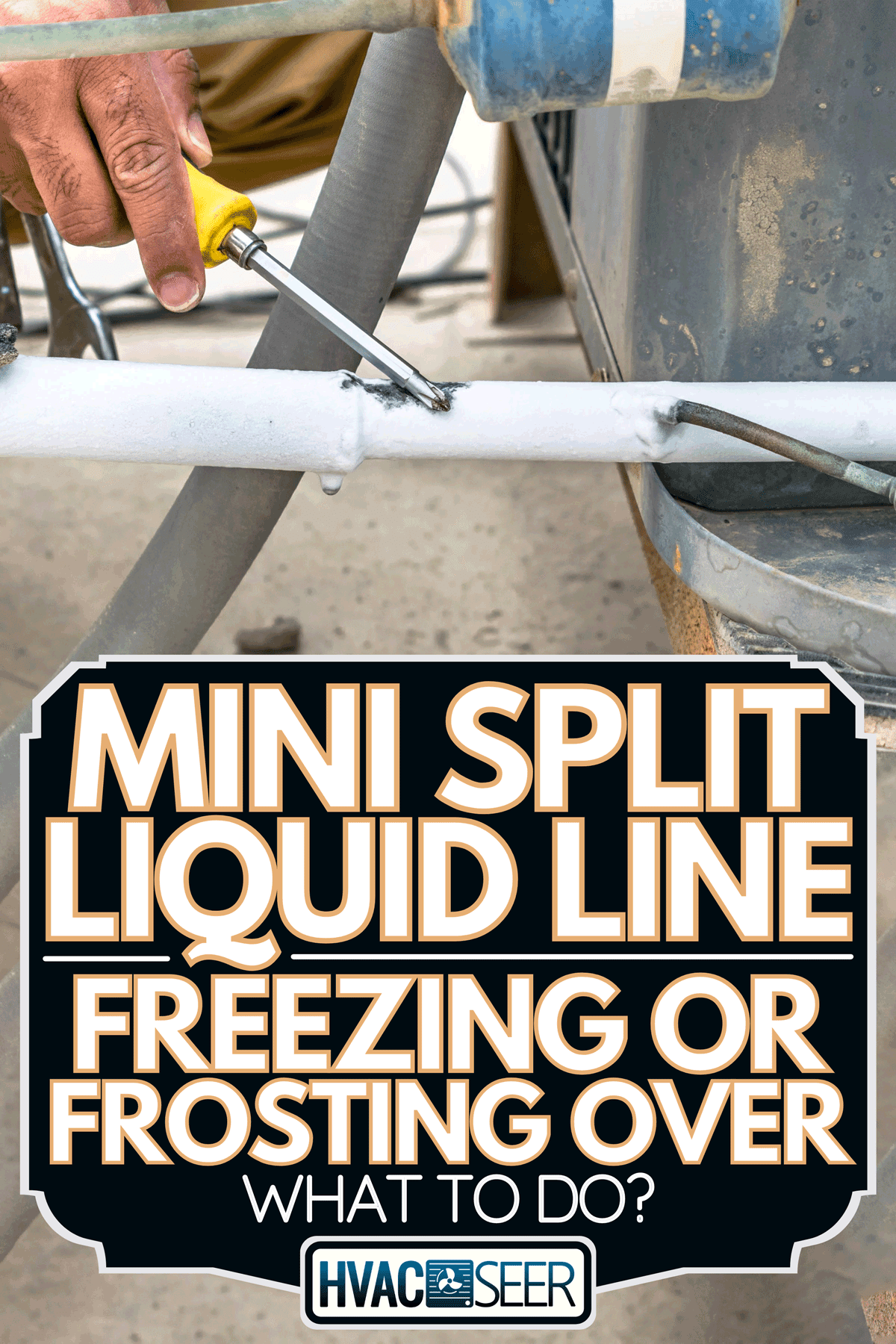
Signs There is Something Wrong with Your Mini Split
If there is something wrong with your unit, you will feel it in your indoor climate—if not in your electric bills. Here are some of the telltale signs to look out for.
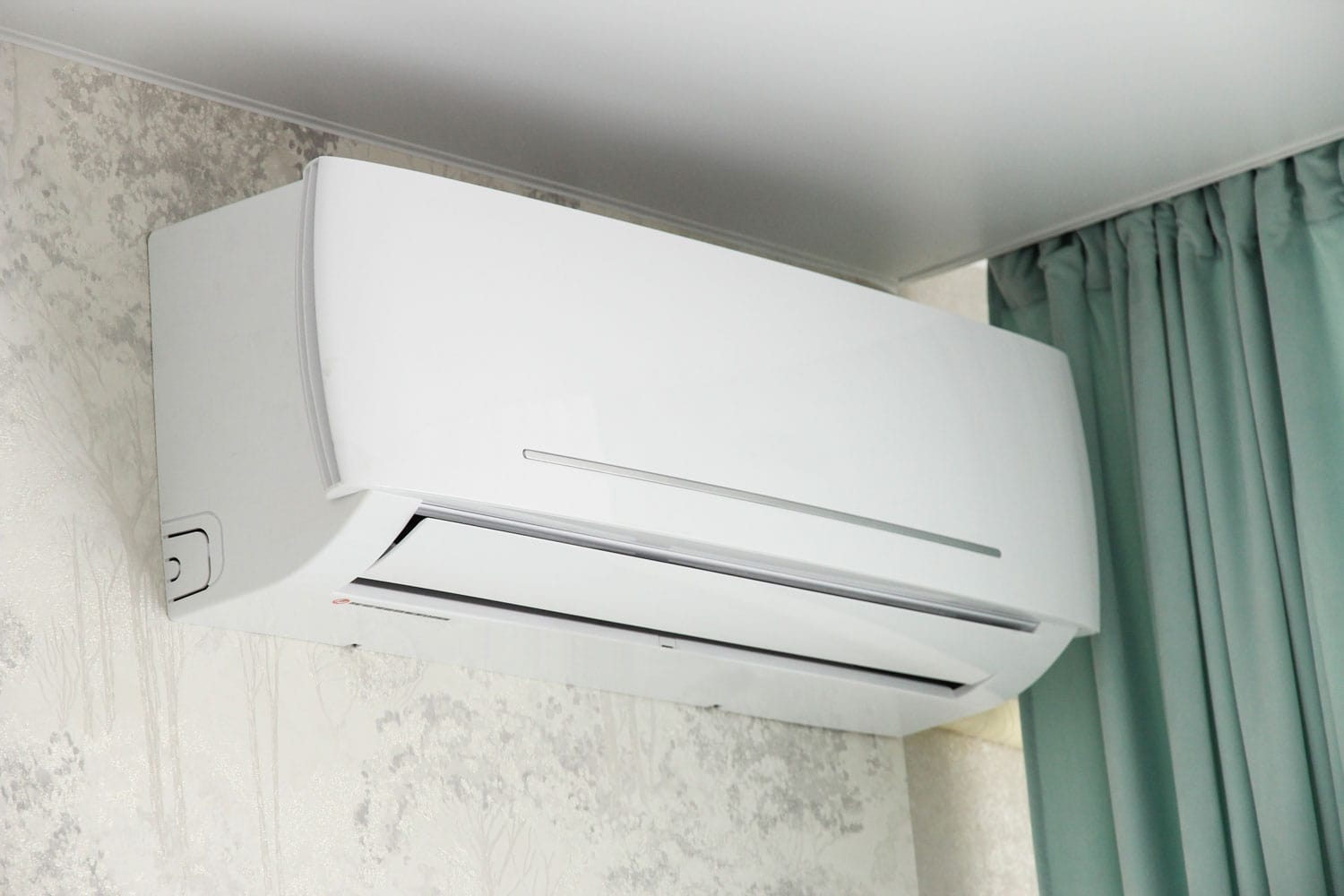
Read more: Mini Split Air Conditioner Not Cooling – What To Do?
Utility Bills are Higher than Normal
Your HVAC system will naturally work harder than it is supposed to if it is not reaching the ideal temperature of your home. As a result, it will consume more energy than necessary and make your electric bill shoot up.
No matter how you adjust your thermostat, your indoor climate might still not be ideal if the unit itself is the issue. The result will be more energy consumed.
Mini Split is not Heating or Cooling your Space
An obvious sign that your unit is not working well is if it fails to perform its function. The reason could be that the refrigerant is leaking or low on energy, which can lead to a frozen liquid line.
Strange Noises from your Unit
If you hear bubbling or hissing noises coming out of your mini split, the problem most likely lies with the blower motor or the refrigerant.
If you suspect a refrigerant leak, call an HVAC professional immediately and do not attempt to change it yourself.
Mini Split is giving off unpleasant smells
If your mini split is blowing a sour or musty smell, you have a mold and mildew problem. You will need to drain the condensate line, then thoroughly clean it to get rid of the bacteria buildup.
If you start noticing a vinegar-like or fishy smell, there is most likely a problem with the compressor or the electrical wiring. In this case, turn off your unit immediately and seek the help of an HVAC professional.
Possible Reasons Why Your Mini Split Liquid Line Frosted Over
A properly-working mini split should be able to cool or heat your room by expelling cooled or heated air from the outdoor compressor through the refrigerant line that sends the air indoors.
Your liquid line, or refrigerant line, acts as a more energy-efficient alternative for the typical duct system. Before you can fix what's wrong with your frozen liquid line, you should first inspect the common culprits.
Leaking refrigerant from evaporator coils
A mini split's outdoor compressor gathers the air from the outside and sends it through the refrigerant line. When the air around the unit is colder, the heated coils can cause condensation and freeze the liquid line.
Debris over the coils
When there are blockages over the coils, the unit will struggle to pull in heated air from outside. This will cause the condensate to freeze over your liquid line since the air is not flowing freely.
Poor Airflow
This is what causes your liquid line to freeze even on hot days. Poor airflow will result in condensate not getting enough heat to be released indoors, resulting in a frosted line.
Dirty Air Filters
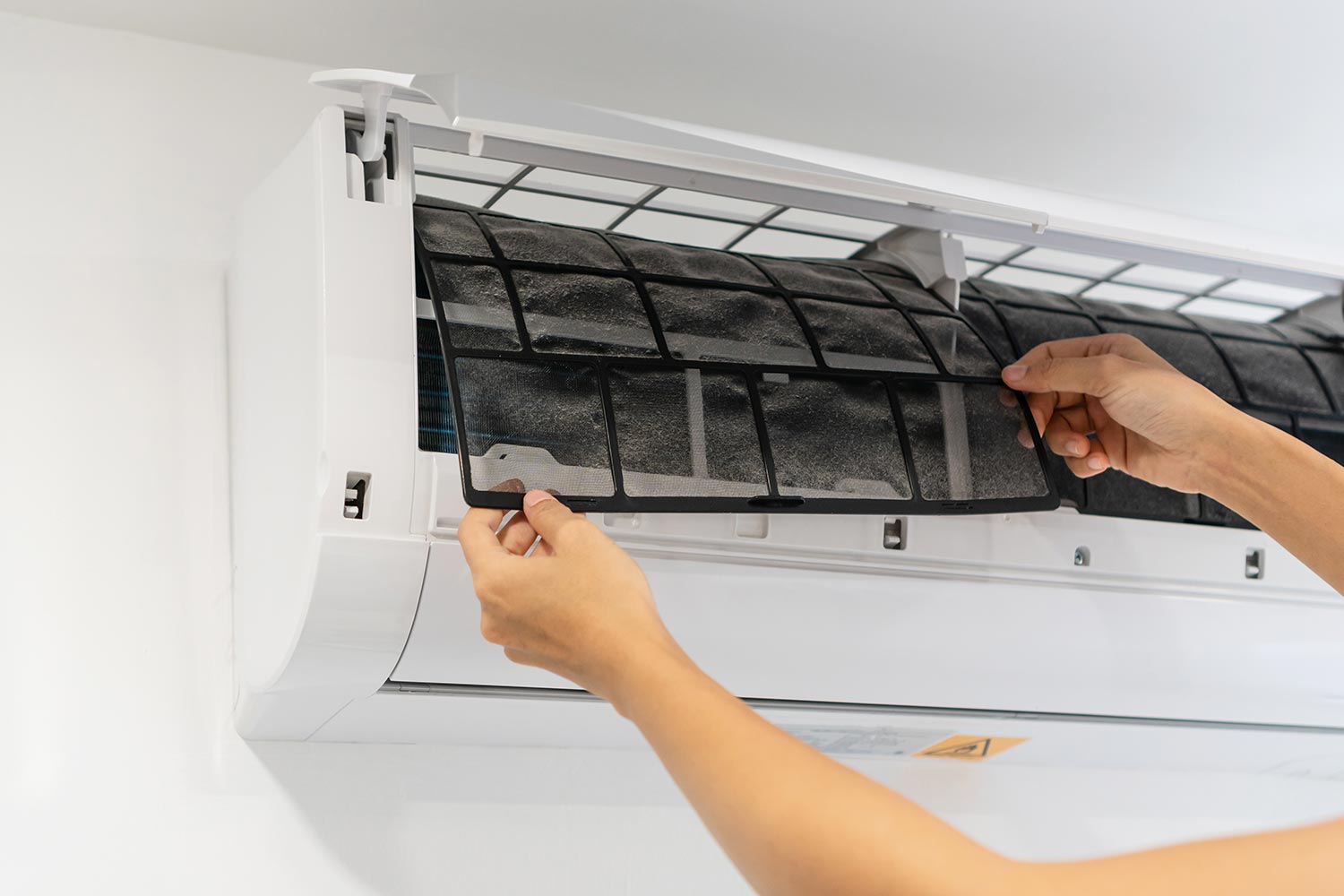
Get rid of any dirt around the air filters to bring back comfort to your home. Some units require regular changing or washing to keep them working in peak condition.
When the cool air is not let out due to the clogged filters, your refrigerant line will be frosty.
Malfunctioning Blower Motor
If a blower motor is not functioning well, your fan will not be able to pull in warm air and expel it into your home—heated or cooled. If it is not properly circulated, the trapped air could cause your liquid lines to freeze.
What is a Mini Split Heat Pump and the Liquid Line?
In contrast to traditional AC units, mini splits are ductless HVAC system that cools or heats a specific area of your home. Instead of ductwork, mini splits use a liquid refrigerant line to put the air inside the room.
The heat pump is connected to the outdoor compressor, pulls in air from the outside, and distributes cooled or heated air into the liquid line. This makes it a more energy-efficient HVAC system compared to traditional heating and cooling systems.
What to do When your Mini Split Ices Over
When you start feeling the changes in your indoor climate, it is time to inspect the problem instead of letting the problem fester—which can result in a more expensive repair.
Here are the most productive solutions you can apply to your frosted refrigerant line.
Thaw the Liquid Line
Switch off the unit, turn on the fan, and let it thaw your frozen liquid line. This method can temporarily protect your compressor from damage, but you will need to properly collect the thawed water to prevent water damage in your unit or your home.
Ensure that your thermostat is still off so your unit will not suddenly turn on and worsen the frost. Once you have thawed the ice, dry the evaporator coils using a blower on low heat.
Change or clean your Air filters
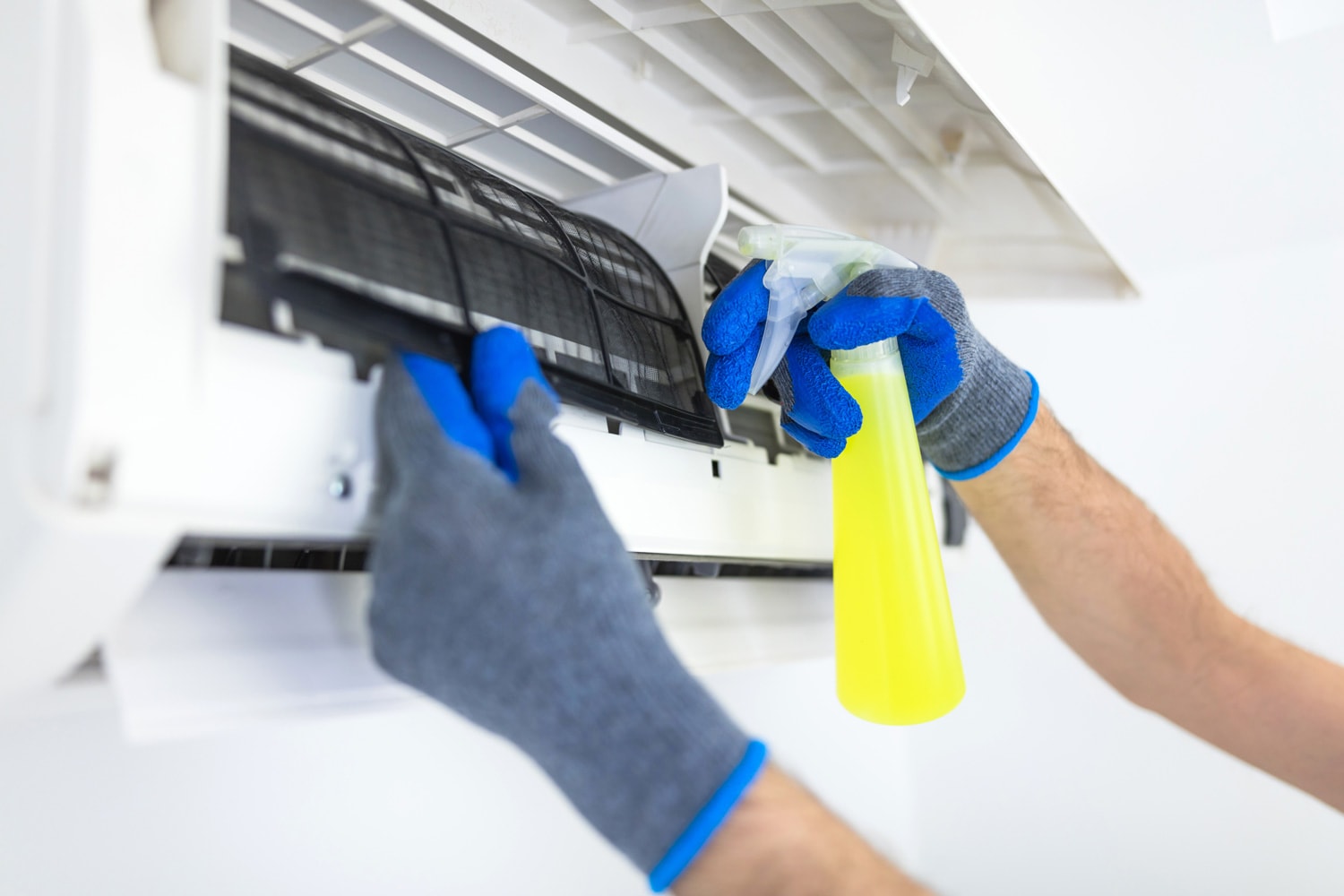
The problem with your unit can lie with a dirty air filter. Once the air is trapped inside, the condensate will freeze. The damage will not be finished within the unit; the air quality around your home may also be affected.
Clean your filters to avoid allergies and diseases from entering your home and to maintain the condition of your mini split.
Read more: How To Clean a Ductless Mini Split Air Conditioner?
Open the air vents
Check if the air is circulating properly around your home. Open the air vents to remove the obstructions between the heat exchange, and make sure there are no furniture or fixtures blocking the vents.
Check the blower motor
If you suspect that your blower motor is not working, there may be something wrong with your compressor, or there may have been dust buildup.
In this case, the wisest move is to call an HVAC professional so they can diagnose the problem properly.
Switch on the Mini Split's Defrost Setting
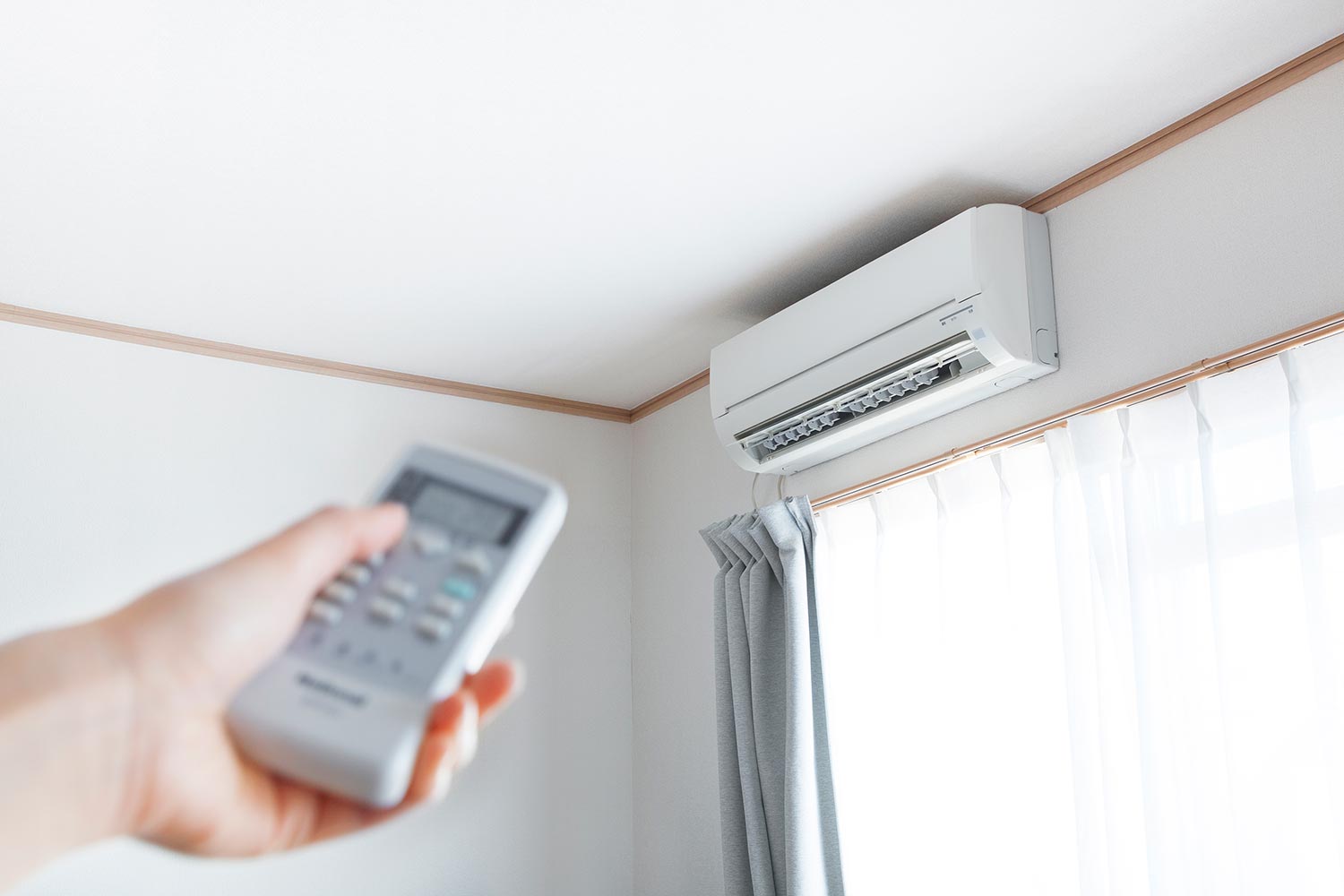
The most efficient way you can solve a frosted liquid line is to turn on your mini split's defrost mode. When the outdoor temperature drops below the freezing point, the heated condenser coil will frost.
Turning on your unit's defrost setting will keep your unit working at peak condition during any season. However, it is still important to check the anatomy of your mini split when it acts up; other factors can still potentially damage your unit.
What to Never Do When Your Liquid Line Freezes Over
Do Not Scrape the Ice
Avoid sharp objects around your unit's wiring, especially if you are not a professional technician. Do not attempt to scrape the ice, as this can add more expensive damage to your unit.
Simply turn on your fan or defrost mode for a quick fix.
Do Not Replace the Refrigerant Without a Professional
If you think there is something wrong with the refrigerant or the compressor, do not attempt to fix it yourself because it can be extremely toxic. You can also harm yourself on the electrical wiring, especially if there is a leak.
Water and electricity do not go well together, so it is best to wait for a professional to fix the problem.
In Closing
There are many reasons why your mini split may freeze over—regardless of whether it is winter or not. Your unit itself may have an issue, or you will need to remove obstructions or adjust how the air circulates around your house.
There are quick fixes, but there are problems that need to be addressed by a professional. As with any system, maintenance is key to keeping your unit running smoothly all year round.
